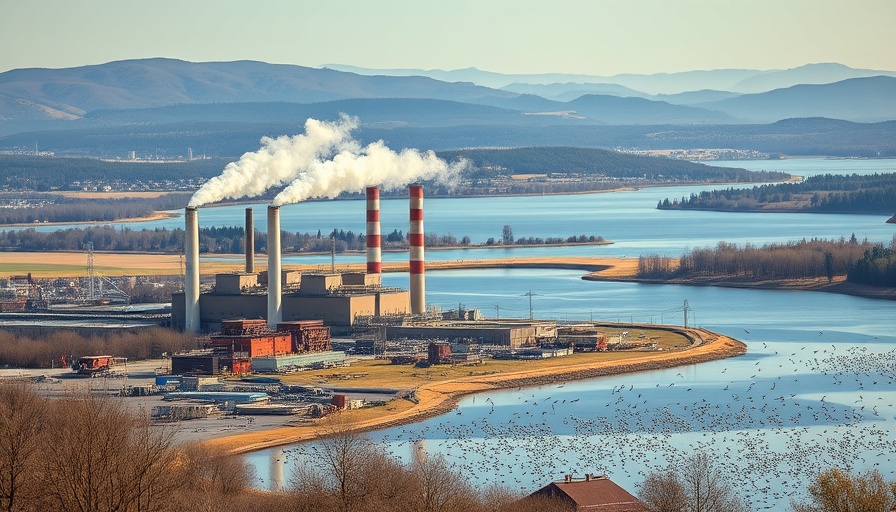
Why Energy Prices are Transforming the Chemical Industry in Europe
In recent months, the volatile energy market has become a looming threat for the chemical industry in Europe, resulting in some companies considering an exit from the continent altogether. This shift has become increasingly evident as energy prices surge due to geopolitical tensions and supply chain disruptions, creating a challenging landscape for businesses heavily reliant on stable, affordable energy.
The Economic Context Behind the Exit Strategies
With energy costs at an all-time high, European chemical companies face a dilemma: continue operations at a loss or relocate to regions with lower energy costs. The implications of such a decision could reshape the industry landscape in Europe, pushing jobs and innovation to other parts of the world. Analysts warn that this move could further weaken Europe's market position in the global chemical supply chain, highlighting an urgent need for policy changes to stabilize energy prices.
Comparative Perspectives: The American Chemical Industry
To understand the urgency facing the European market, it’s important to consider how American companies are faring. In recent years, the United States has become an attractive destination for chemical manufacturing, primarily due to its abundant and cost-effective energy resources. With significant investments in natural gas production, U.S. firms have an edge that enables them to thrive where European companies falter. This creates a paradox where European companies, traditionally leaders in innovation, now find themselves at a crossroads.
Potential Consequences for the European Economy
The ramifications of a mass exodus from Europe could extend beyond just the chemical sector. A significant workforce transition may destabilize local economies heavily reliant on chemical manufacturing jobs. Furthermore, loss of competitiveness might result in increased prices for consumers who rely on chemical products for everyday necessities. As such, the window for intervention is narrowing and calls for government action grow louder.
Future Predictions: Industry Trends to Watch
As companies weigh their options and explore exit strategies, several trends may emerge. First, investment in renewable energy sources could become essential as firms look to mitigate costs. Additionally, innovation in energy-efficient technologies might rise, fostering a new wave of sustainability-focused startups. These developments may point toward a rebuilding phase, where companies that adapt to new energy realities emerge stronger.
Counterarguments: Why Some Companies May Stay
Despite the challenging environment, some companies firmly believe in the value of remaining in Europe. Factors like existing infrastructure, a skilled labor market, and strong regulations promoting sustainability motivate companies to innovate rather than relocate. Some industry experts argue that the path forward lies in collaboration between the public and private sectors to find solutions. Future policies could encourage investment in cleaner energy and energy-efficient processes that could ultimately stabilize the market.
Practical Insights for Businesses Considering the Market Shift
For businesses contemplating their future in the European chemical market, there are several actionable strategies to consider. First, assess the current energy consumption and explore options to diversify energy sources. Engaging with local policymakers to advocate for more sustainable energy initiatives is another crucial step. Finally, businesses should keep a close eye on technological advances that could enhance their operational efficiencies, helping to weather the storm of rising costs.
The Road Ahead: Opportunities in the Face of Adversity
For stakeholders in the chemical industry, the current energy crisis presents both challenges and opportunities. While the prospect of relocation is daunting, it also opens doors for fresh innovation and potential partnerships. European companies pushing towards sustainability and energy efficiency can set new industry standards that transform their business models into future-proof, economically viable ventures. As the saying goes, necessity is the mother of invention. The current landscape may compel the chemical industry to evolve at a pace that creates beneficial outcomes for the economy and the environment.
As the situation develops, staying informed about industry trends and changes can better position companies for decisions that may significantly impact their future. In the face of this upheaval, collaboration and innovation will be key drivers of success.
 Add Row
Add Row  Add
Add 



Write A Comment